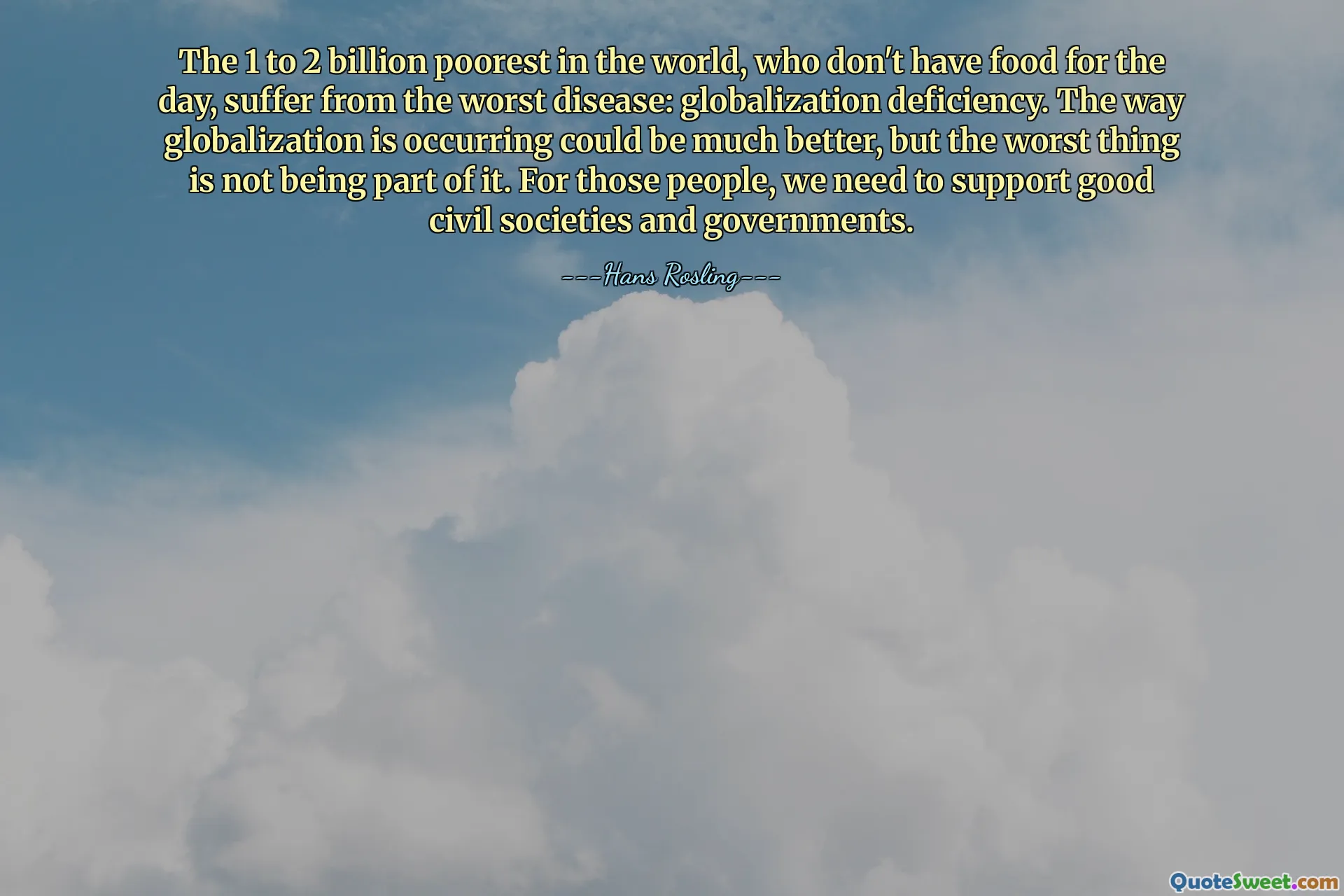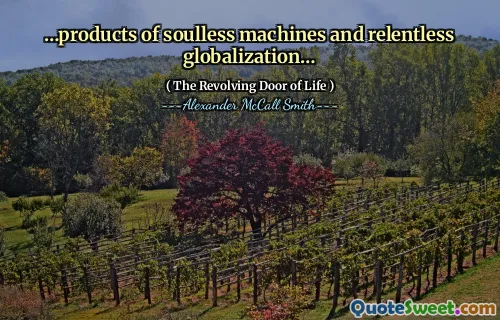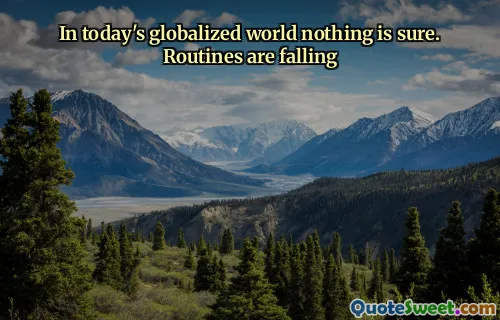
The 1 to 2 billion poorest in the world, who don't have food for the day, suffer from the worst disease: globalization deficiency. The way globalization is occurring could be much better, but the worst thing is not being part of it. For those people, we need to support good civil societies and governments.
This quote sheds light on a crucial aspect of global development: the disparity in how globalization impacts different populations. While globalization is often viewed as a process that promotes economic growth, technological advancement, and cultural exchange, it can also lead to exclusion and marginalization of the poorest segments of society. The phrase "globalization deficiency" poignantly illustrates that for billions, the absence of participation in the global economy results in suffering—not just from lack of food, but from missed opportunities for progress and improved living standards. The idea that the way globalization unfolds could be significantly improved reflects the need for more inclusive and equitable policies that aim to lift marginalized communities rather than leave them behind.
Supporting civil societies and governments becomes imperative, as these entities are vital in implementing policies that ensure fair distribution of globalization's benefits. They can foster local initiatives, enhance education, healthcare, and economic opportunities, creating a framework where even the most impoverished are integrated into the global community.
This quote urges us to rethink globalization beyond economic metrics. It emphasizes moral responsibility and calls for a concerted effort to make development more human-centered. It reminds us that true progress involves reducing disparities and ensuring that everyone, regardless of their socio-economic status, can partake and benefit from globalization. Such an approach ultimately contributes to a more just and sustainable world, where inclusion replaces exclusion and shared prosperity becomes a tangible goal.
---Hans Rosling---











